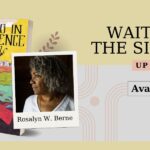By: Joshua Finley
Yenju’s journey through the classical music landscape is defined by a singular mission: to challenge stereotypes and reshape the traditional understanding of what classical music can be. Her innovative approach is rooted in a commitment to promoting diversity, mixing genres, and engaging diverse audiences through multimedia and workshops. This mission is not just about altering perceptions; it is about making classical music more inclusive, accessible, and relevant in today’s world.
A key aspect of Yenju’s approach is her willingness to blend classical violin with genres like jazz, noise rock, and folk. “I challenge conventional norms for classically trained violinists by creating unique and contemporary sounds,” she explains. This fusion of styles enables her to perform in unconventional venues such as bars, outdoor festivals, galleries, and DIY spaces. By moving beyond traditional concert halls, Yenju reaches a wider and more varied audience, bringing classical music to people who might not otherwise encounter it.
Technology also plays a significant role in Yenju’s performances. She utilizes loop pedals and electronic effects to expand the violin’s sonic possibilities, crafting modern and dynamic shows. Collaborating with artists from diverse musical backgrounds further enriches her work, fostering cross-genre projects that bring fresh perspectives to classical music.
Yenju’s commitment to thinking outside the box is evident in her performances, which often include interactive elements that encourage audience participation. “Through these innovative approaches, I push the boundaries of classical violin performance,” she says, making the experience more engaging and dynamic for contemporary audiences.
One particularly striking example of Yenju’s unconventional approach occurred during a show with the Arroyo Arts Collective. She deliberately sang a chorale with intentional flaws, allowing the audience to hear the mistakes. “While classical music often emphasizes perfection, I chose to showcase vulnerability as an artist,” Yenju recalls. This deliberate embrace of imperfection aimed to bridge the gap between performer and audience, fostering a deeper connection and humanizing the performance experience. By embracing her flaws, Yenju created a more authentic and relatable musical encounter, challenging traditional expectations and inviting the audience into a shared journey of expression and emotion.
In addition to her performances, Yenju actively encourages other artists to embrace creativity and individuality within their musical journeys. She shares her experiences to inspire artists to collect materials from various sources and express themselves authentically. Emphasizing the importance of self-expression and storytelling in music, Yenju advocates for embracing mistakes as opportunities for growth, fostering a culture of fearlessness and experimentation.
Yenju employs several strategies to foster a culture of innovation and diversity within the classical music community. She actively promotes works by underrepresented composers and artists, initiates collaborative projects across genres, engages in educational outreach, advocates for inclusive programming, supports emerging artists, and addresses social issues through music. “Through these strategies, I aim to create a more inclusive, innovative, and diverse classical music community that reflects the richness and complexity of our world,” she asserts.
Her advocacy for challenging stereotypes has significantly influenced the perception of classically trained violinists in the industry. By expanding repertoire, blending genres, embracing innovative performance practices, and advocating for inclusivity, Yenju demonstrates that classical musicians are not confined to tradition but are dynamic, creative, and relevant to contemporary audiences. This shift has helped to create a more welcoming and diverse industry, showcasing classically trained violinists as innovative, inclusive, and adaptable contributors to the musical landscape.
Of course, challenging stereotypes in classical music has not been without its challenges. Yenju has faced resistance to change, skepticism, limited opportunities, and the delicate task of balancing tradition with innovation. However, she has overcome these obstacles by demonstrating the value of new approaches through successful performances, staying true to quality, seeking out alternative opportunities, and maintaining a balance between tradition and creativity.
In her musical endeavors, Yenju strikes a careful balance between tradition and innovation. She deeply studies classical music’s traditions while exploring new creative paths. “I respect authenticity, ensuring that any innovations stay true to the music’s spirit,” she explains. By actively seeking out new ideas and collaborations across genres, Yenju adapts classical music to contemporary contexts, embracing change while honoring its legacy.
Yenju’s mission has had a profound impact on the broader conversation surrounding creativity and individuality in classical music. By being innovative and embracing her uniqueness, she has inspired others to do the same. Through her collaborations and performances, Yenju has shown that classical music can be diverse and inclusive, encouraging musicians to try new things and make classical music more exciting and welcoming for everyone.
Published by: Martin De Juan

















